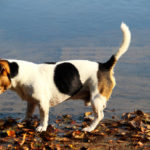6 Tips for Feeding Your Jack Russel Terrier
Jack Russell Terriers are feisty, intelligent dogs with a lot of energy to burn. That’s why they need plenty of exercise, but also good food to keep them healthy and happy. However, the wrong kind of food can lead to health problems down the road, so make sure you’re feeding your dog these six tips on Jack Russel Terrier Dog Food.
1) How Much Should I Feed My Dog?
Like any other animal, your dog’s nutritional needs depend on its size, activity level, and breed. If you want to find out how much food your Jack Russell Terrier should be eating per day, use a specially formulated dog food calculator.
Most dog food calculators ask you to answer a few questions about your pet’s age, weight and diet before recommending an amount of food to feed him per day.
2) Things You Should Never Give Your Dog
Chocolate. Did you know that many dog owners consider chocolate to be a dangerous food? Chocolate contains methylxanthines, which can have a toxic effect on dogs.
The most common symptoms of chocolate poisoning are vomiting and diarrhea, but more severe cases can lead to irregular heartbeats, seizures, coma, and even death. So don’t ever give your dog any kind of chocolate — there is no evidence suggesting it has any health benefits!
3) Omega Fatty Acids
Not only do dogs need a certain amount of fat to be healthy, but specific types of fat can actually help prevent chronic diseases. Omega fatty acids are unsaturated fats that help reduce inflammation in your dog’s body and aid in cell regeneration. The best sources of omega fatty acids are fish oils and flaxseed oil.
4) Low-Carb Diets – Are They Good for Dogs?
Studies show that a lower-carb diet is as good for dogs as it is for humans. Lower-carb diets are rich in healthy fats and proteins, which means your furry friend will be fuller faster, and longer. And since he won’t be hungry all day, you can enjoy more time together without having to worry about feeding him—or cleaning up after him!
Talk to your vet before switching your dog’s diet, though—some dogs do better with a high-carb meal plan.
5) Is Gluten Bad For Dogs?
Dog food manufacturers will often add grain-based fillers to their products. Gluten is a protein found in wheat, rye, and barley, so if your dog food contains any of these grains, your dog might be consuming gluten without you even knowing it.
Of course, humans with Celiac disease must avoid all gluten-containing foods as well—and that includes many commercial dog foods. So is gluten bad for dogs? A growing number of veterinarians are saying yes.
6) Grain-Free Diets – What Are The Benefits?
Grain-free diets are becoming more and more popular in recent years, with many owners finding that their pet’s allergies are reduced or even eliminated. Since grains aren’t found in nature, they can be difficult for dogs to digest, which can lead to diarrhea or other digestive issues.
Grains may also increase inflammation in pets, causing skin rashes and allergic reactions like those seen in humans with food sensitivities.
Conclusion
In general, smaller dogs live longer than larger dogs. But size isn’t everything! You can influence how long your dog lives by feeding it quality dog food and providing proper care and exercise. The life expectancy of a Jack Russell Terrier is 12-15 years; feed yours right and get ready to enjoy many happy, healthy years together.












